Master of Science (M.S.)
Data Analytics and Computational Social Science
University of Massachusetts - Amherst
2024
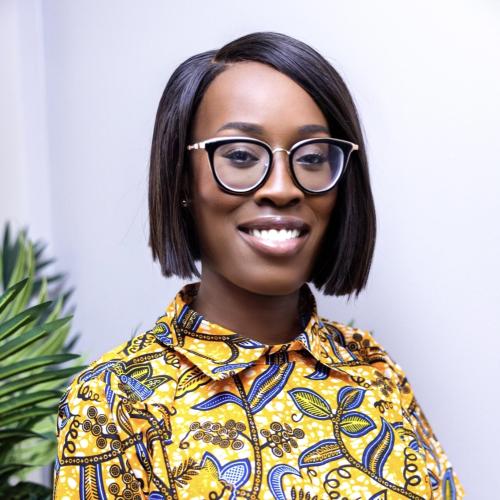
Amy Yeboah Quarkume, Ph.D., affectionately known as Dr. A, is a daughter of Africa, a scholar, filmmaker, data scientist, and Associate Professor of Africana Studies in the Department of Earth, Environment and Equity at Howard University. She holds a Ph.D. in African American Studies, two master's degrees in Sociology and African American Studies, and certificates of Data Analytics from Harvard Extension School and the University of Massachusetts. Quarkume is an Andrew Mellon New Direction Fellow, a National Center for Atmospheric Research Innovator Fellow, and a White House Initiative HBCU All-Star Campus Mentor.
Quarkume is presently the Director of Graduate Studies for the master's Program in Applied Data Science and Analytics, advancing Howard University's first major effort in becoming a hub for data science social justice research and training for the next generation of data scientists. Her work as a data scientist centers around AI Bias, data inequality, and environmental justice. Currently, she employs an Africana Studies framework to examine the intersections of race and technology. Furthermore, she is the PI of the CORE futures lab, PI in the NOAA Cooperative Science Center in Atmospheric Sciences and Meteorology (NCAS-M), and Co-PI for the Race and Tech lab.
In addition to her achievements, Quarkume is also spearheading with a team of graduate, undergraduate, high school and middle school students the multi-year “What's Up with all the Bias” project, generously funded by the National Center for Atmospheric Research's Innovator Program. This endeavor interweaves climate change, race, AI, culture, and environmental justice, with a mission of shedding light on data pollution issues in Black, Brown, and Native American communities. The project underscores various challenges, such as the need for improved environmental data collection sites, equitable dissemination of environmental information, prompt installation of data collection instruments, and inclusive community engagement in environmental matters. Recognizing the potential pitfalls, Quarkume emphasizes the necessity of thoughtful AI implementation to address these complex issues, striving for comprehensive and lasting solutions.
In the field of Education and Technology, Quarkume has leveraged over 10 years of experience with the the Children’s Defense Fund's National Freedom School program and Philadelphia Freedom Schools program in administration and curriculum development to develop human resources training, and study abroad engagement opportunities, with a focus on diversity, inclusion, and cultural responsiveness pedagogy. Additionally, she is the developer of the HELLO BLACK WORLD curriculum, designed for Africana Studies majors, minors, and friends in the humanities and social sciences who want to explore and develop data and computer science competencies centered around the presence of African contributions and imagination. She is also an NSF funded I-corp PI, developing an innovative solution designed to facilitate the language learning process for children aged 4 and above, incorporating advanced technologies, including Natural Language Processing (NLP), speech recognition software, and Artificial Intelligence (AI).
Her work in the area of Women's Studies, focuses on Black Women in Higher Education. Her first book Her Truth and Service: Lucy Diggs Slowe in the Her Words is now available. Her current works examines the intersectionality of the experiences of Black women and environmental justice.
She has published in the Journal of Women, Gender, and Families of Color; Mosaic Magazine; Black Scholar; CLA Journal and is currently working on her second book project titled "Data Pollution and Savage Algorithms." Additionally, she has contributed to and been an invited guest on BET News, PBS NewsHour, Direct TV, American Radio Works, Al Jazeera America's The Stream, Philadelphia Community Access Media, Roland Martin TV One News Show, and Mother Jones.
Data Analytics and Computational Social Science
University of Massachusetts - Amherst
2024
Data Analytics
Harvard University Extension School
2023
African American Studies
Temple University
2013
African American Studies
Temple University
2011
Sociology
Temple University
2010
This course is designed to help students think explicitly about their social responsibility as data scientists and the impact on the world of what they are building and analyzing. Using contemporary case studies from recent news stories and legal cases, students will learn about issues such as intellectual copyright, consent, data security, differences between privacy and confidentiality, difficulties of anonymization, and bias in artificial intelligence. In addition, students will be engaged with fundamental questions of justice in relation to data and computing in American society.
The HELLO BLACK WORLD curriculum has been designed for students of African descent who want to explore and develop data and computer science competencies centered around the presence of African contributions and the imagination. The curriculum addresses computer science, data science, the visualization of diverse data types, digital humanities, ethics, and communications within the Black world with a social justice lens. No previous programming or statistical background is assumed. The Intro to the Black Digital World course introduces students to the African Origins of Mathematics and Computer Science, basic python, data science and visualization of diverse data types within the Black world (e.g. text, numbers, images).
Data collection, visualization, and analysis have been entangled in the struggle for racial and social justice because they can make injustice visible, imaginable, and thus actionable. Data has also been used to oppress minority communities and institutionalize, rationalize, and naturalize systems of racial violence. With a focus on environmental justice, along with critical social science literature, students gain introductory experience and do collaborative and creative projects using real-world data.
This course studies the historical and contemporary experiences of Africana Women through the major concepts and methods of the stand-alone academic field, discipline, and meta-discipline of Africana Studies. While the course primarily focuses on Black women in America, the readings include diverse experiences, perspectives, and scholarships of women from the African continent, the Caribbean, and North and South American communities. Building off of historically African centered experiences, the readings will provide a social-historical framework for the course and will draw from many disciplines including literature, psychology, sociology, science, as well as art. A focus will be placed upon contemporary issues such as the Politics of Health and Motherhood; Art and Culture; Media and Representation; Education and STEM; Wage and Equity; Politics and Power and Crime and Punishment. In examining the experience of Black Women in America students will also capture and reflect upon the story of Black womanhood over the years and critically engage in museums, artifacts, and archives that connect to historical narratives of Black women in America.
This course provides students with an introduction to Black Education in America with a focus on contemporary issues. Organized around questions about teaching, learning, and schooling people of African descent, a critical eye is placed current social structural arguments in education policy for people of African descent. In examining the cultural and structural foundations of education, students will also reflect upon and critique their own educational experiences and articulate their own beliefs and values about teaching, learning, and schooling, and critically engage in museums, artifacts and archives that connect to historical narratives of education in America.
The Early Career Faculty Innovator Program is a new funding opportunity for early career faculty in the social sciences and STEM outside of NCAR’s core expertise to co-develop interdisciplinary research projects in partnership with scientists and engineers at the National Center for Atmospheric Research (NCAR) in Boulder, Colorado.
The goal of this project is to incorporate data science and analytics (DSA) into the honors curriculum and co-curricular experiences in the College of Arts and Science at Howard University, targeting the disciplines of Chemistry, Biology, Mathematics, Psychology, Political Science and Economics. This project’s DSA content development activities will be guided by the incorporation of Competency-Based Education and Problem-Based Learning, both regarded as high impact practices that attract and retain high-achieving students
As a Harvard University Associate in the Institute for Quantitative Social Science (IQSS) at Harvard I will collaborate with Professor Latanya Sweeney developing curriculum for the Data Science for Social Justice program
New Directions Fellowships assist faculty members in the humanities and humanistic social sciences who seek to acquire systematic training outside their own areas of special interest.
Capacity Accelerator Network (CAN) Democratizing data skills and investing in social impact organizations’ capacity to be data-driven will lead to transformative change. The Capacity Accelerator Network will work to increase skills and support organizations, enabling them to unlock the power of data to meet their missions.
Bezos Earth Fund Announced $443 Million in Grants to Advance Environmental Justice, Conserve and Restore Nature, and Improve Monitoring and Accountability.
Humanities Vision Grant provides financial and capacity building resources to community organizations interested in creating innovative interpretations of humanities scholarship for public audiences. The grants are driven by the proposed final product; each grant will produce an educational resource that will be added to a publicly accessible, online archive.
Read: Business Insider | The problem with only talking about 'unconscious' bias
Read: NBC4 Washington | Books to Read for Juneteenth, as Recommended by DC's Black Educators
Read: Chicago Sun Times | Will George Floyd’s death with a knee on his neck become nation’s ‘Emmett Till moment?’
Read: The Wall Street Journal | Juneteenth Protests, Celebrations Planned in Major Cities
Watch: WJLA | Push for Preservation: Home of 1920's African-American educators could become DC landmark
Read: VICE | Nipsey Hussle’s Memorial Was a Celebration of African Spirituality
Read: PBS | What Beyoncé teaches us about the African diaspora in ‘Lemonade’
Her Truth and Service: Lucy Diggs Slowe in Her Own Words
Lucy Diggs Slowe (1885–1937) was one of the most remarkable and accomplished figures in the history of Black women’s higher education. She was a builder of institutions, organizing the first historically Black sorority, Alpha Kappa Alpha, while a student at Howard University in 1908; establishing the first junior high school for Black students in Washington, D.C.; and founding as well as leading other major national and community organizations. In 1922 Slowe was appointed the first Dean of Women at Howard, making her the first Black woman to serve as dean at any American university. Beyond her trailblazing career in higher education, she was a committed teacher, an ardent antiracist advocate, and even a national tennis champion.
Her Truth and Service showcases Slowe’s speeches, articles, and letters, illuminating her multifaceted accomplishments and unwavering dedication to the quest for equality and justice. In these texts, readers encounter Slowe’s powerful voice and keen intellect, witnessing her triumphs and travails as an educator, a leader, and a Black woman in a deeply exclusionary society. Slowe’s writings depict her personal and professional efforts to topple race and gender barriers and open up greater opportunities for Black women and girls, as well as the obstacles she faced in male-dominated institutions including the Howard administration. Her Truth and Service is an important document of a significant figure in the development of Black institutions and an inspiring testament to the lifelong struggle for social justice.
Making Data Science Democratic
There is the democracy we think we live in, and then there is the democracy we are actually living in. In the democracy we think we live in, individuals and communities have the power to shape their own futures, to define their own interests and act on them. In this scenario, the government is a supporter and protector of the public interest, providing infrastructure, education, public safety, clean water, and other basic needs. Data — how it is collected, managed, and deployed in public services — plays an increasingly important role in the public interest.
ChatGPT: A Digital Djembe or a Virtual Trojan Horse?
We should critically engage and evaluate the expansion of artificial intelligence models and other content-generating technologies. Here’s why.
During the 1960s Howard University held great promise, finding itself at a transformative crossroads as it related to the institutional study of Black life. On September 3, 1966 in a Washington Post article, Howard University President Nabrit declared “he would like to see enrollment eventually distributed between whites and Negroes on a 50–50 basis, and perhaps even 60–40.
Why the West Couldn’t Hear Beale Street: Baldwin’s World-sense of Female Sexuality
While scholars have noted James Baldwin’s revisionary and transformative literary approach to social constructions of race, class, gender, and crime, there has been very little conversation in that vein regarding If Beale Street Could Talk (1974). Upon its publication, many critics issued negative reviews of the novel, failing to recognize how Baldwin’s view of female sexuality both embraced notions of the body and constructs from an African-centered world-sense. Using a range of theoretical resources from Africana Studies, this paper analyzes how moving beyond Western frameworks regarding knowledge, sexual discourse, and behavior offers a new interpretation of Baldwin’s aims that reclaims and re-imagines Black sexual politics.
Reconceptualizing Black Students Going Abroad: Heritage Experiences in Theory and Practice
International Journal of Multidisciplinary Perspectives in Higher Education, v4 n1 p1-21 2019
The lack of participation in study abroad programs by Black students is a topic of persistent concern yet increasing opportunities has not yielded significant results. A closer look at study abroad programs identifies a gap in program offerings and experiences that Black students might actually desire. Reconceptualizing what Black people value from travel experiences and addressing students' primary obstacles going abroad--the financial burden, fear of anticipated racism, and finding programs of interest (Gasman, 2013)--led Howard University to offer a heritage program approach. This article looks at how the Young AfricanA Leadership Initiative (YAALI) fellowship closes the cultural gap that exists for Black students in traditional study abroad programs.
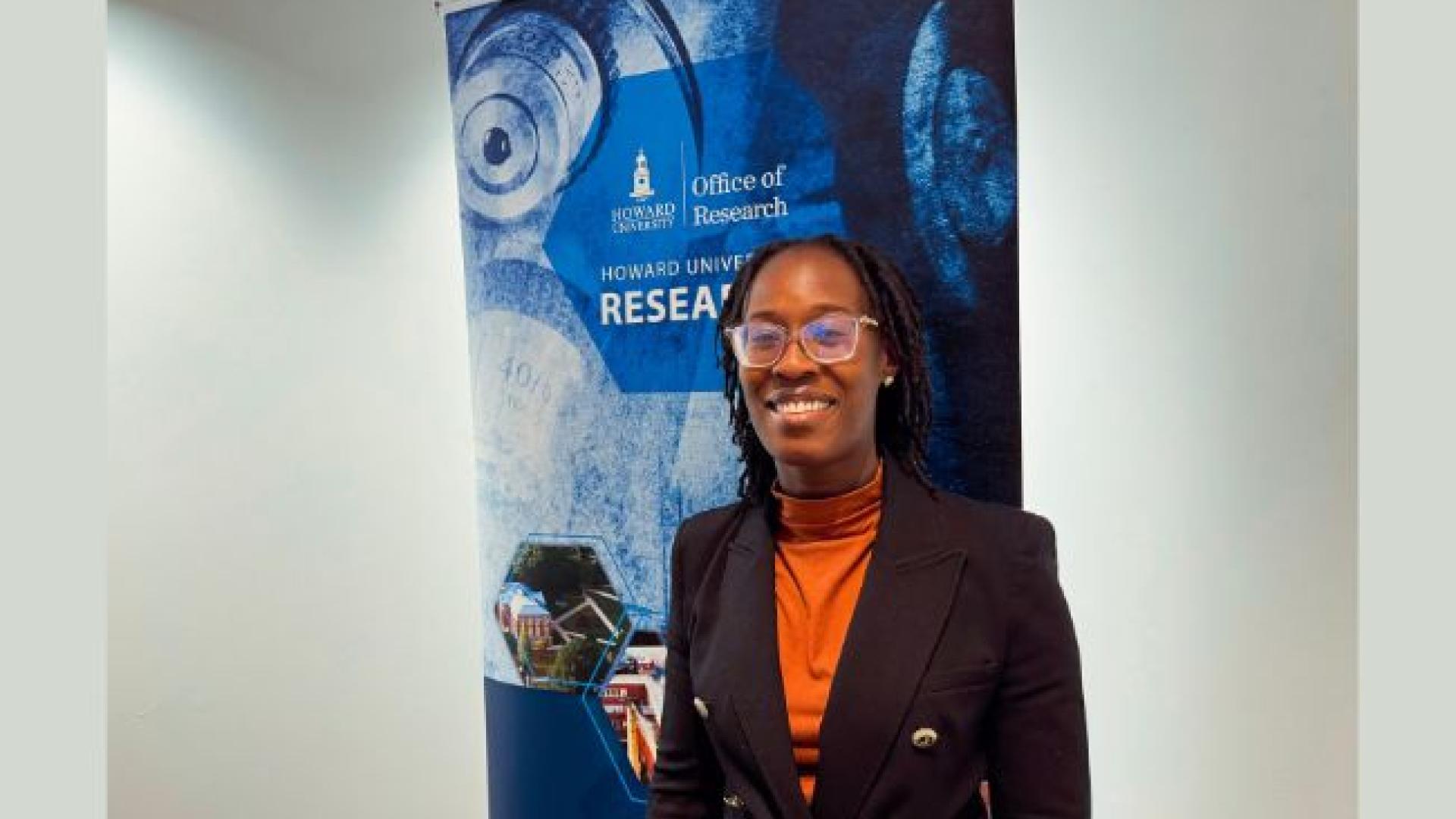

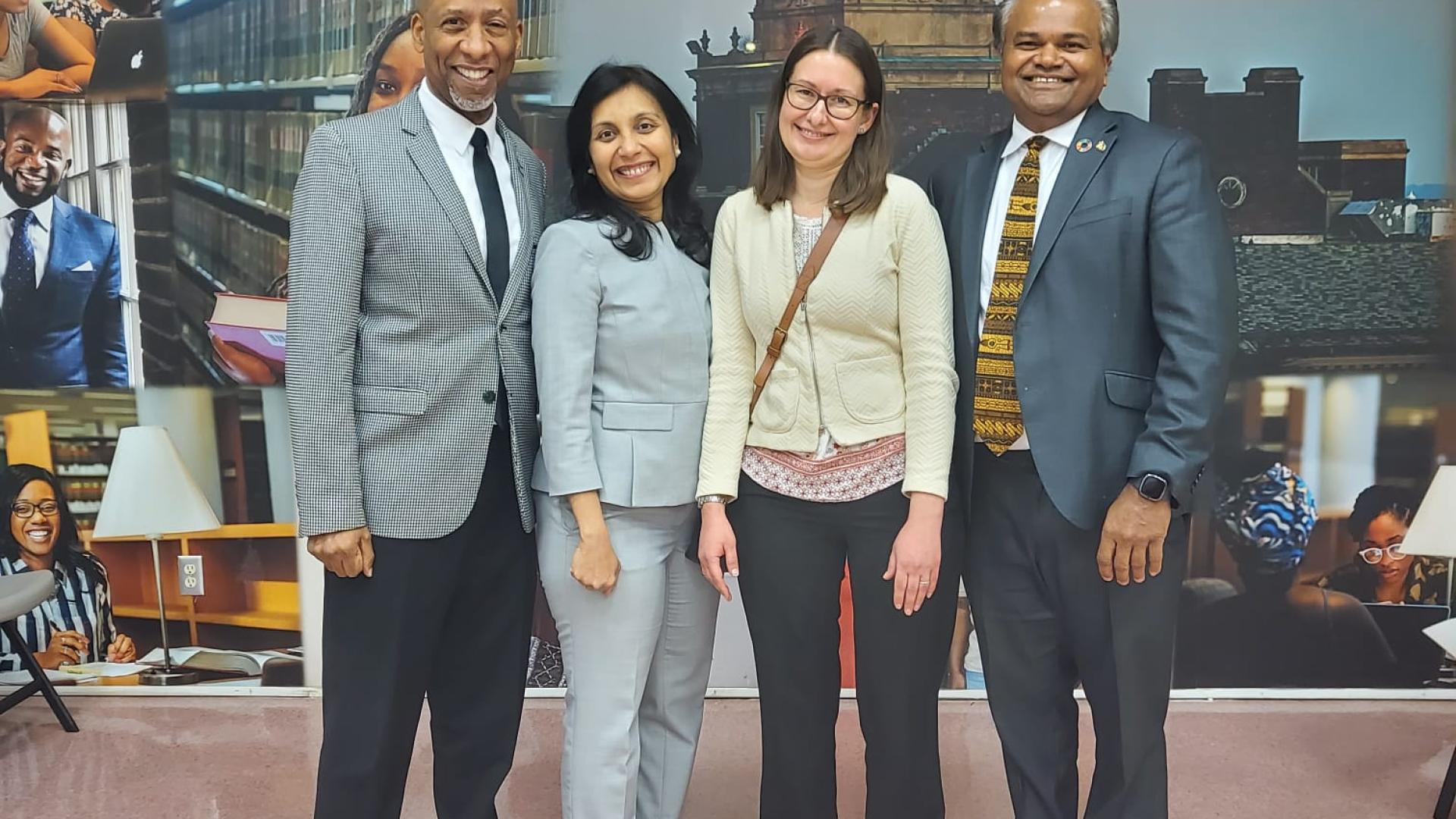

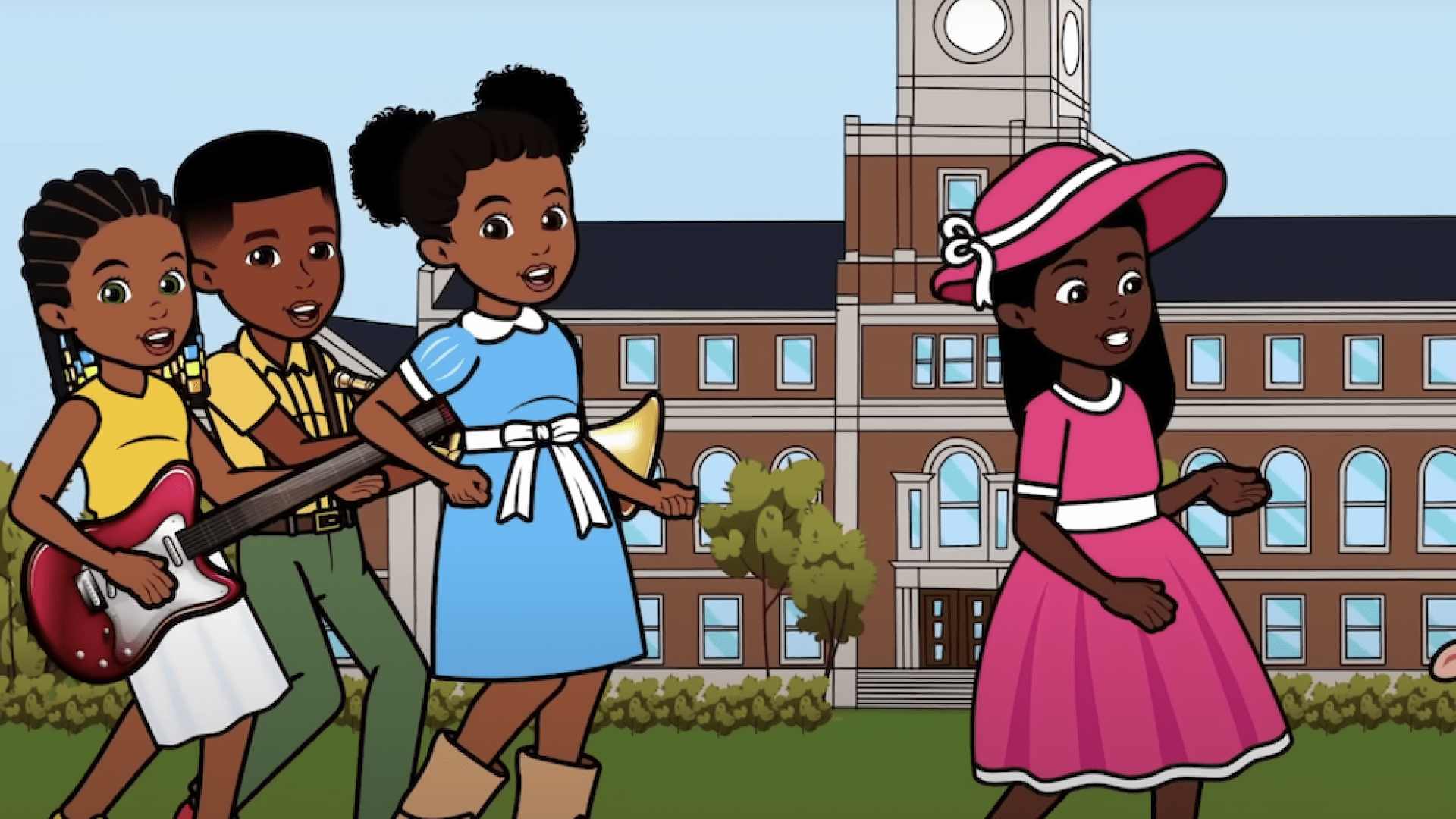
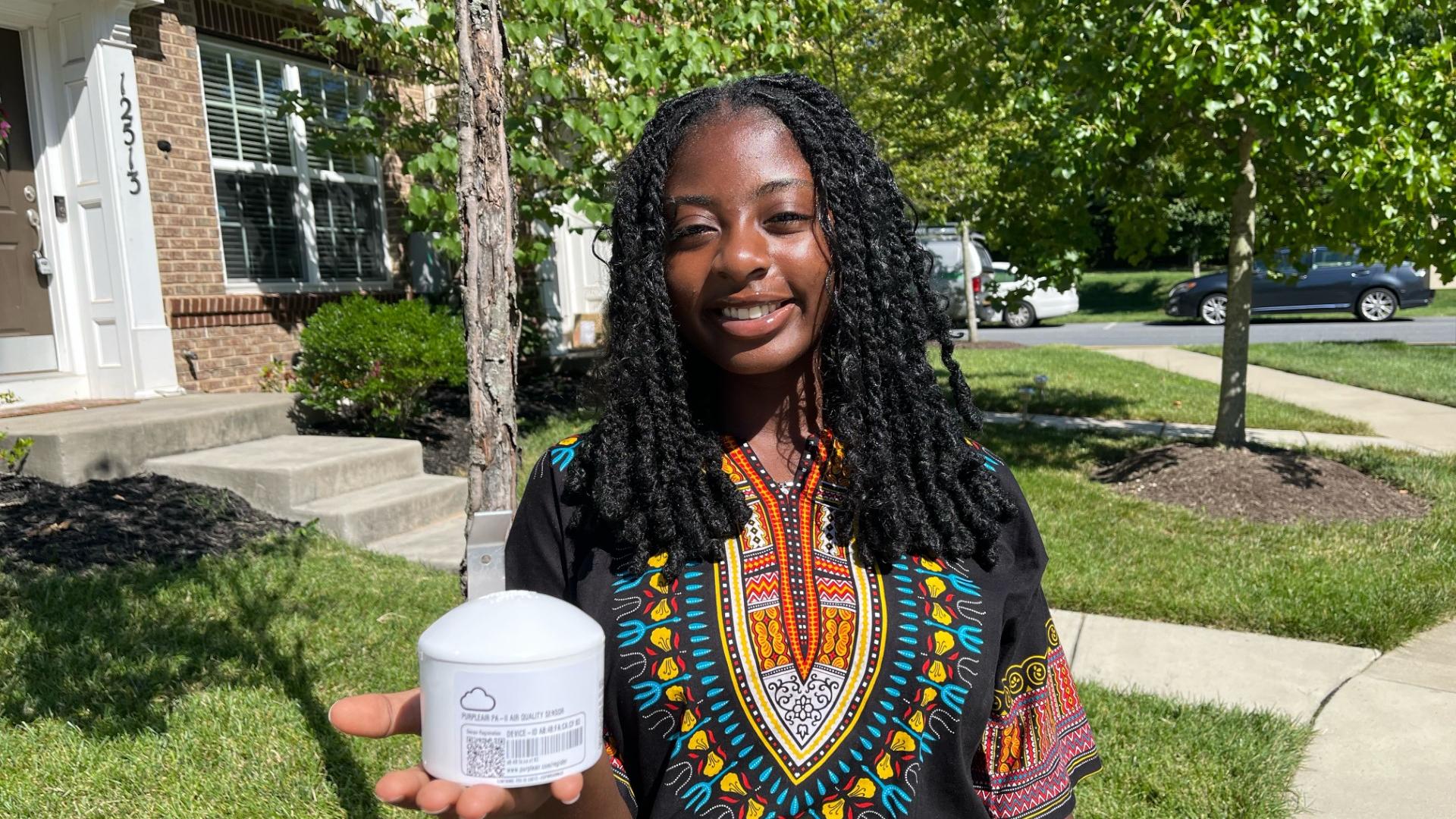

Richard's guest today is Dr. Amy Yeboah Quarkume. Amy is associate professor of Africana studies in the Department of Afro-American Studies and the director of student engagement at the Center for Women, Gender, and Global Leadership at Howard University. She is an editor of the Black Lives in the Diaspora: Past / Present / Future series and the author of the new book Her Truth and Service: Lucy Diggs Slowe in Her Own Words.
Spark Talk: Training the Impact Data Scientists of Tomorrow w/ Amy Yeboah Quarkume, David Uminsky
Have you noticed that there always seems to be a disconnect between African Americans and other people in the Diaspora? Why does it feel like being labeled "African American" is a bad thing? Sufficiently Black explores these questions with "daughter of Africa," Howard University Professor Dr. Amy Yeboah Quarkume. Dr. A explains the importance of language to limit the divide, whether people in the Diaspora are capable of cultural appropriation and the issues with Marvel's Black Panther.